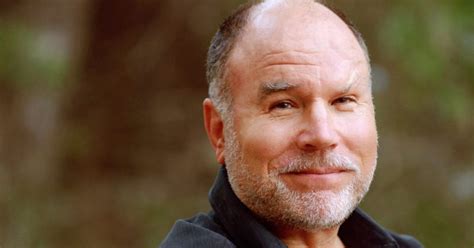A Quote by Stefan Zweig
There's an inherent limit to the stress that any material can bear. Water has its boiling point, metals their melting points. The elements of the spirit behave the same way. Happiness can reach a pitch so great that any further happiness can't be felt. Pain, despair, humiliation, disgust, and fear are no different. Once the vessel is full, the world can't add to it.
Related Quotes
True happiness isn't something that can be made. It isn't the result of anything. Happiness comes to those who understand that you can't seek it any more than you seek the air you breathe. It is a part of life to be found within living. ... All pursuit of happiness is based upon the false assumption that there is a way to possess it; you may as well try to grab a handful of breeze! Happiness is the natural expression of a stress-free life, just as sunlight naturally warms the Earth after dark clouds appear.
The belief that happiness has to be deserved has led to centuries of pain, guilt, and deception. So firmly have we clung to this single, illusory belief that we've almost forgotten the real truth about happiness. So busy are we trying to deserve happiness that we no longer have much time for ideas such as: Happiness is natural, happiness is a birthright, happiness is free, happiness is a choice, happiness is within, and happiness is being. The moment you believe that happiness has to be deserved, you must toil forevermore.
By utility is meant that property is any object, whereby it tends to produce benefit, advantage, pleasure, good, or happiness(all this in the present case come to the same thing) or (what comes again to the same thing) to prevent the happening of mischief, pain, evil or unhappiness to the party who whose is considered: if that party be the community in general, then the happiness of the community; if a particular individual; then the happiness of that individual
I had always been taught that the pursuit of happiness was my natural (even national) birthright. It is the emotional trademark of my culture to seek happiness. Not just any kind of happiness, either, but profound happiness, even soaring happiness. And what could possibly bring a person more soaring happiness than romantic love.
The American Heritage Dictionary defines crucible as "a place, time, or situation characterized by the confluence of powerful intellectual, social, economic, or political forces; a severe test of patience or belief; a vessel for melting material at high temperatures." A crucible was the vessel in which medieval alchemists attempted to turn base metals into gold. That the alchemists inevitably failed in their audacious attempts doesn't denigrate the power of the crucible as a metaphor for the circumstances that cause an individual to be utterly transformed.
One of the great arts in living is to learn the art of accurately appraising values. Everything that we think, that we earn, that we have given to us, that in any way touches our consciousness, has its own value. These values are apt to change with the mood, with time, or because of circumstances. We cannot safely tie to any material value. The values of all material possessions change continually, sometimes over night. Nothing of this nature has any permanent set value. The real values are those that stay by you, give you happiness and enrich you. They are the human values.
Why do men learn through pain and suffering, and not through pleasure and happiness? Very simply, because pleasure and happiness accustom one to satisfaction with the things given in this world, whereas pain and suffering drive one to seek a more profound happiness beyond the limitations of this world.
happened as I listened: I felt pain. Not in my head, not in my arm, not in my leg; everywhere at once. I told myself there was no difference between being “inside” and being “outside,” that it all came down to X’s and O’s that could be acquired in any number of different ways, but the pain increased to a point where I thought I might collapse, and I limped away.
After that [father's death] I never cried with any real conviction, nor expected much of anyone's God except indifference, nor loved deeply without fear that it would cost me dearly in pain. At the age of five I had become a skeptic and began to sense that any happiness that came my way might be the prelude to some grim cosmic joke.







































